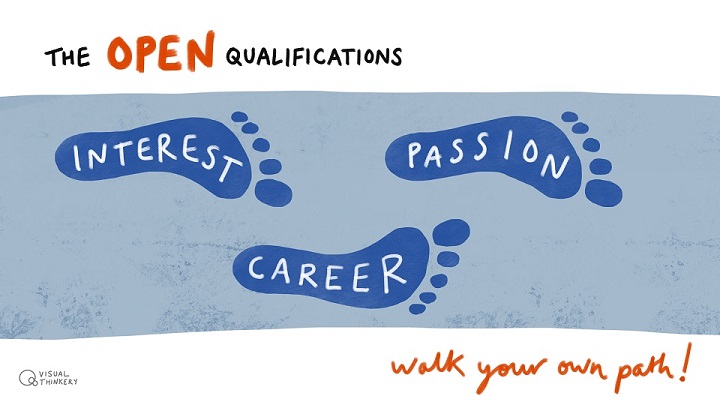
Neill Boddington works for the OU as a Mental Health Advisor within the Mental Health Casework and Advisory Team and previously worked for many years in the field of resilience and stress management.
For this year’s University Mental Health Day, I have been reflecting on this awareness day and the wider issues around our daily wellbeing and mental health.
While days such as this help to focus people’s minds and can be the catalyst for conversation, new thinking, change and initiatives, we should also ensure we do not make ours and other people’s wellbeing a ‘hashtag’, a meme or a once-a-year consideration, because looking after our mental health really is a daily consideration.
This University Mental Health Day I would like you to think about how you can start to consider your mental health every day. Today could be the day you start to develop your ‘coping toolbox’. This toolbox is filled with various ‘tools’ and the more ‘tools’ we have, the more options we have available to deal with different situations and boost our wellbeing and mental health.
 For example, these ‘tools’ can be practical things that help you to remove or reduce a stressor which is known as ‘root cause solving’ or you may need some tools to cope with your emotions so you can remain calm and relaxed, which is known as ‘emotions focused coping’.
For example, these ‘tools’ can be practical things that help you to remove or reduce a stressor which is known as ‘root cause solving’ or you may need some tools to cope with your emotions so you can remain calm and relaxed, which is known as ‘emotions focused coping’.
So why not now? And I do mean right now. Grab a pen and paper or open a new tab on your computer or phone and think about some strategies to help improve your wellbeing and uplift your mood. Maybe this is an important/urgent task list or asking others for help and support. Managing our emotions can be helped by thinking about aspects of our lives that bring us a sense of pleasure, happiness, connection or calmness. I often prompt people to consider what theirs could be by considering the 5 P’s – people, places, possessions, pastimes (hobbies) and past times (learning from past experiences). Often, these everyday ‘uplifts’ can help to offset many of life’s ‘hassles’.
As you consider these, you can start to build your coping toolkit, but in many cases, you already have a coping toolbox; it’s all about whether you open the toolbox at the right time and identify the right tool for your wellbeing and mental health. The more frequently you delve into your toolbox, the quicker and easier your wellbeing will benefit, and you can learn to become more resilient. The more resilient you are, the more likely you are to use your tools….you see where I’m going with this?!
 Another good way to help identify appropriate tools is to think about things that make you feel happy and relaxed that can be done in (around) 5 minutes, 1 hour or 1 day. For example, a 5-minute activity could be making a cuppa and sitting in the garden.
Another good way to help identify appropriate tools is to think about things that make you feel happy and relaxed that can be done in (around) 5 minutes, 1 hour or 1 day. For example, a 5-minute activity could be making a cuppa and sitting in the garden.
An hour activity could be calling your friend for a catch up and a day long activity could be a trip to the seaside.
Finally, don’t forget that education is itself a benefit to our wellbeing and when the process of gaining your qualification becomes tough, you might benefit from stepping back to look at your success so far, to feel proud of the challenges you have overcome and to remind yourself of the reasons why education is important to you. This type of reflective and considered thinking can help to create a resilient philosophy and behaviours.
Find out how to use the important/urgent principle and more about your levels of resilience with the free RoberstonCooper iResilience report. Discover ideas for your wellbeing with NHS Every Mind Matters and take inspiration from the Action for Happiness calendars.
OpenLearn also have a range of resources around mental health and wellbeing. Click on the links below to have a look.
